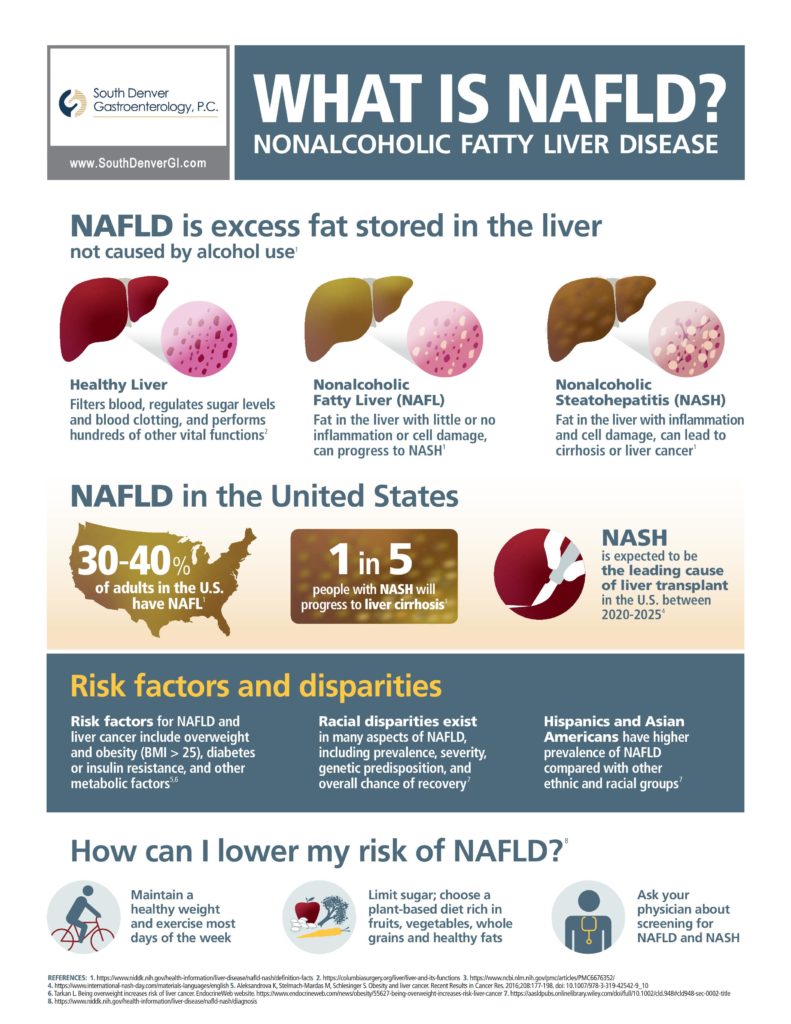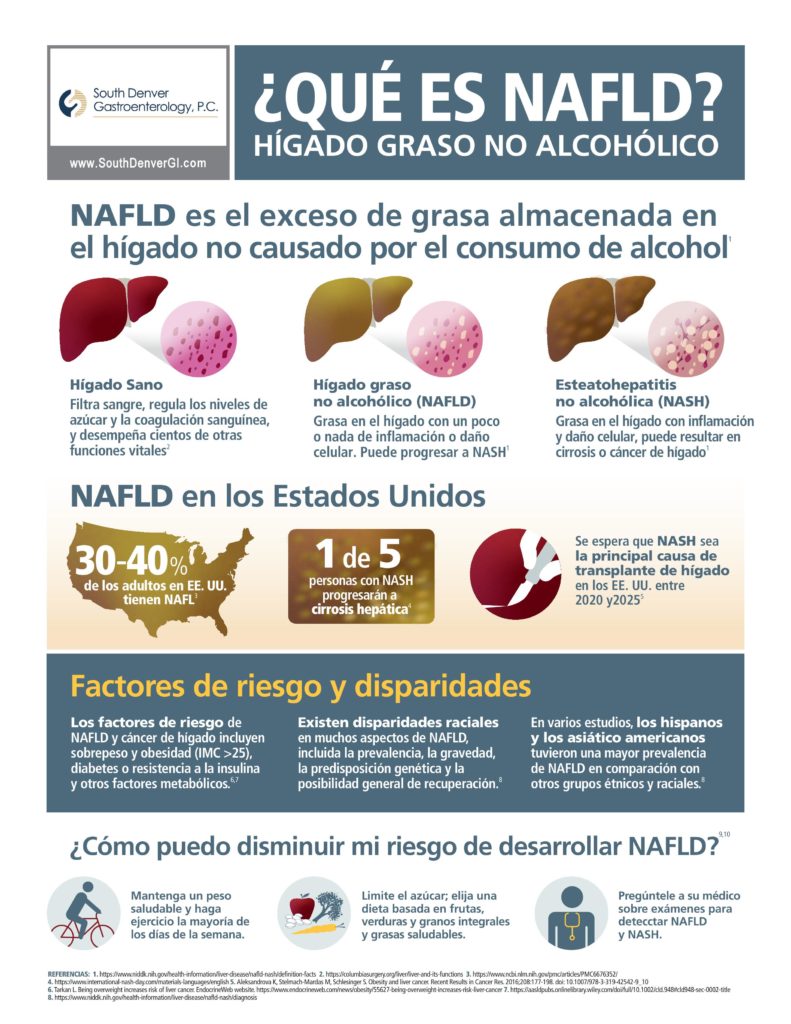What is Fatty Liver Disease?
Fatty liver disease is a condition where extra fat is stored in the liver. There are two categories of fatty liver disease: Alcohol-related fatty liver disease (ALD) and nonalcoholic fatty liver disease (NAFLD).
Alcohol-Related Fatty Liver Disease: This condition is caused by heavy drinking. Over time, excessive amounts of alcohol can lead to a buildup of fat in the liver cells, impairing liver function.
Nonalcoholic Fatty Liver Disease: There are two main types of NAFLD. The first is simple fatty liver, which is a condition of excessive fat in the liver but no significant inflammation or damage to the liver cells. Nonalcoholic steatohepatitis (NASH) is a more serious form, in which the liver is inflamed and there is damage to liver cells. This can lead to serious issues such as cirrhosis.
There are usually no symptoms associated with early fatty liver disease, although pain in the right upper abdomen can occur. Most manifestations occur when fatty liver has progressed to cirrhosis of the liver. When this occurs, symptoms may include:
- Yellowing of the skin and whites of the eyes (jaundice)
- Swelling of the abdomen or leg
- Fatigue
- Confusion
- Itching of the skin
- Nausea
- Weight loss
- Gastrointestinal bleeding


How is Fatty Liver Disease Diagnosed?
Fatty liver disease usually has no symptoms, so it is often suspected because of abnormalities on a routine blood test. Elevated liver enzymes are a sign that you have liver damage. Your doctor may also order more testing, including additional blood work, ultrasound, CT scan, elastography or a liver biopsy for proper diagnosis.
Liver Research Helps Improve Patient Outcomes
Treatment Options for Fatty Liver Disease
The main course of action when it comes to treatment is to control those factors contributing to fatty liver disease. Individuals in the early stages of liver damage may be able to reduce liver fat and inflammation when taking these courses of action. This may include lifestyle changes such as:
- Avoiding consuming alcohol.
- Weight loss (this may include following the Mediterranean diet).
- Exercising regularly.
- Taking proper medications to control high blood pressure, lipids and diabetes.
How Can I Prevent Fatty Liver Disease?
There are some steps you can take to help prevent the development of fatty liver disease. This includes drinking alcohol in moderation. Staying at a healthy weight through regular exercise, eating a healthy, balanced diet, and controlling other medical problems. If you are concerned about developing fatty liver disease, speak with your doctor regarding a prevention plan.
Fatty Liver FAQs
What foods should you avoid if you have a fatty liver?
Does fatty liver cause back pain?
Where do you feel liver pain?
Is fatty liver painful?
How long can you live with a fatty liver?
Can fatty liver Be Cured?
What causes a person to have a fatty liver?
How serious is a fatty liver?
How can fatty liver disease be managed?
What are the warning signs of fatty liver disease?
Your South Denver GI Team
At South Denver GI, our team of physicians and advanced practice providers have the expertise to provide you with outstanding care. If you would like to learn more about Fatty Liver Disease or need to schedule an appointment at our office, contact us today!
View All Our Providers
Contact Us Today
Patients who are experiencing the symptoms associated with fatty liver disease should schedule an appointment with one of our doctors at South Denver GI. Our team of professionals will work closely with you to determine the best plan of action.
Contact UsRequest Appointment
Click on the Schedule Appointment button to schedule an appointment with your South Denver GI provider online. If you do not wish to use our convenient online scheduling tool, please fill out the form below and our team will contact you shortly.







